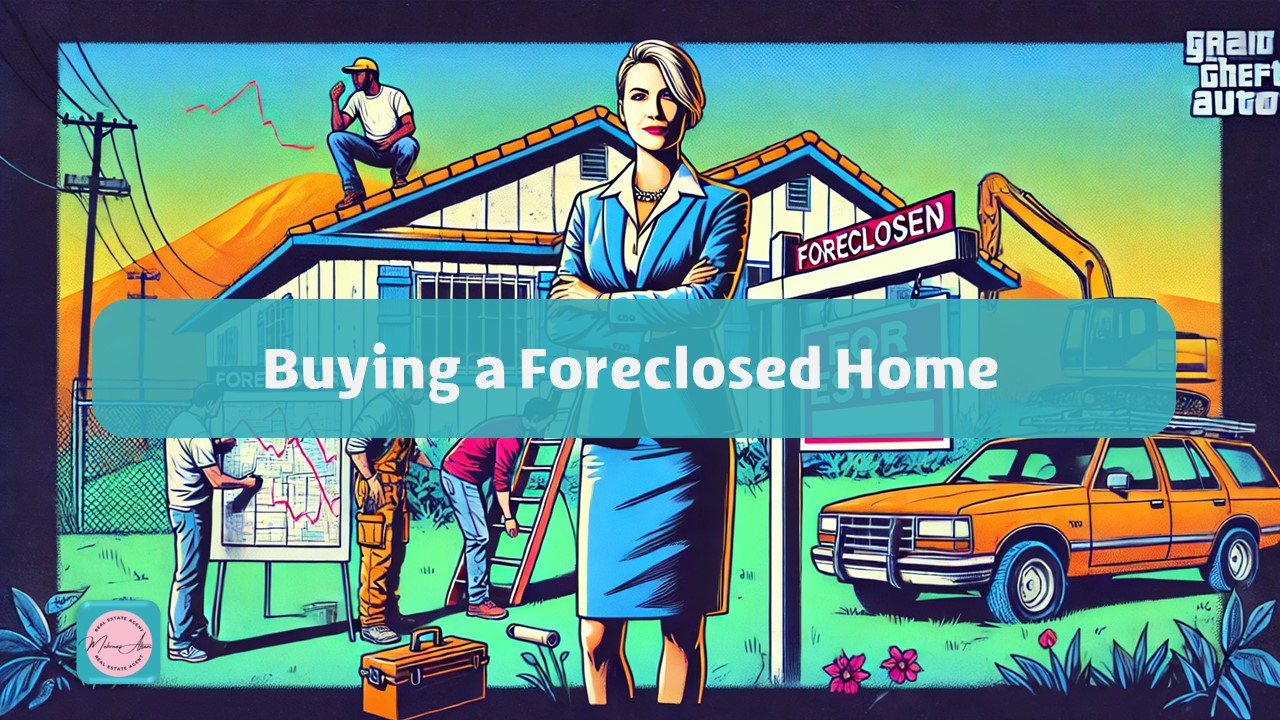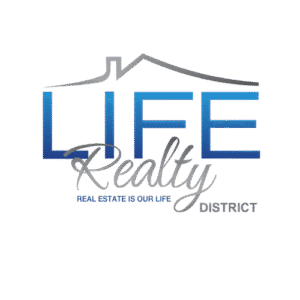Buying a foreclosed home might sound like a bargain hunter’s dream—and sometimes, it is. But behind the low prices can lie legal complexities, repair surprises, and paperwork that’s not for the faint of heart. If you’re considering buying a foreclosed home, whether as a first-time buyer or a savvy investor, it’s essential to understand both the risks and the rewards.
In this guide, you’ll learn how foreclosure works, how to find and evaluate distressed properties, and how to move from interest to ownership—without losing your shirt in the process. We’ll also cover financing options, legal precautions, and renovation tips to help you turn a distressed home into a smart investment.
READ MORE: How to Find the Best Schools in Las Vegas
What Is a Foreclosed Home?
A foreclosed home is a property that has been taken back by a lender after the previous owner failed to keep up with mortgage payments. These homes are often sold at a discount because banks and lenders aren’t in the business of holding real estate—they want to recover their losses quickly. But how exactly do these homes end up on the market?
When a homeowner misses several months of mortgage payments, the lender begins a legal process called foreclosure to reclaim the property. After formal notice and a waiting period, the lender takes possession and eventually lists the home for sale—often at auction or as a bank-owned (REO) property.
-
Judicial foreclosure goes through the court system. It tends to be slower but offers more legal transparency for the buyer.
-
Non-judicial foreclosure happens outside of court and is more common in states like Nevada. It’s faster, but buyers must do extra due diligence since there’s less legal oversight.
Knowing your state’s foreclosure process is key to understanding how properties are listed, how long they take to close, and what protections you have as a buyer.
Most foreclosed homes are listed by banks, government entities (like HUD or VA), or auction houses. Some are occupied, others are vacant. Some are in great shape, others need serious rehab. Each source comes with its own timeline, documentation process, and risks.
Pros and Cons of Buying Foreclosed Properties
Buying a foreclosed home can be a great opportunity—but only if you go in with clear eyes. The lower price tag is appealing, but the unknowns can cost you in time, money, and peace of mind.
Potential Cost Savings
The biggest draw is price. Foreclosed homes are often 10% to 30% below market value, which makes them attractive for budget buyers and real estate investors alike. In competitive markets like Las Vegas, finding a below-market property is rare—unless you’re looking at foreclosures.
These homes can also offer room for equity growth if you renovate wisely and choose the right location.
Risk of Repairs or Liens
Because foreclosed homes are sold as-is, buyers must be ready for surprise repairs—anything from water damage and missing appliances to major structural or plumbing issues. Also, some homes come with unpaid property taxes, HOA fees, or mechanic’s liens from past contractors.
| Title | Quick Summary |
|---|---|
| Get Pre-Approved or Prepare Cash | Secure financing or have cash ready to move quickly on a deal. |
| Research Foreclosure Listings | Look for homes on HUD, Auction.com, bank sites, and courthouse records. |
| Work with an Experienced Agent | Partner with a foreclosure expert to navigate offers and risks. |
| Evaluate the Property and Its Condition | Inspect the home, run title checks, and calculate renovation costs. |
| Make a Strategic Offer | Price your offer based on repair costs, market comps, and risk. |
| Close the Deal and Take Ownership | Finalize the sale, confirm title, and plan next steps after closing. |
Step 1 – Get Pre-Approved or Prepare Cash
Before you start browsing foreclosure listings or attending auctions, you need to have your financing fully lined up. Foreclosed properties often move fast—and banks rarely wait for unprepared buyers. Whether you’re buying with cash or financing, having your numbers in order is the first step to playing smart in this market.
Why Cash Buyers Have an Advantage
Cash buyers are highly favored in the foreclosure space. Why? Because they can close fast, with fewer contingencies, and less risk of financing falling through. In auction settings or when dealing with bank-owned properties (REO), cash buyers often win by default simply due to their speed and certainty.
Even if you’re financing, showing strong proof of funds for your down payment can help strengthen your offer.
FHA 203(k) and Conventional Loans
Financing a foreclosure isn’t impossible—you just need the right loan type. The FHA 203(k) loan is designed for homes that need work. It rolls purchase + renovation costs into one mortgage, but requires more paperwork and strict property standards.
Conventional loans work too, but the property usually needs to be in livable condition. Major issues (like missing systems or structural defects) may disqualify a home from typical loan approval without upfront repairs.
Working with Foreclosure-Savvy Lenders
Not every lender is comfortable with distressed properties. Look for one with experience in foreclosures, REOs, or investment lending. A good lender will walk you through what’s financeable, what’s risky, and how to structure your offer based on the property condition.
Step 2 – Research Foreclosure Listings
Finding foreclosed homes isn’t like scrolling Zillow for regular listings. These properties are often scattered across multiple platforms, sold through different channels, or never even reach the open market. If you want access to the real deals, you need to know where to look—and how to filter.
Several online platforms specialize in distressed and government-owned homes:
-
HUD Homes (hudhomestore.gov): For properties backed by FHA loans.
-
Auction.com: A large marketplace for foreclosure and bank-owned auctions.
-
HomePath.com: Fannie Mae’s official site for REO (Real Estate Owned) homes.
-
Xome, Hubzu, RealtyTrac: Other platforms worth checking regularly.
Each platform has its own process, rules, and offer requirements—read carefully before bidding.
Many banks and credit unions list their REO inventory directly on their websites. Look for a link like “foreclosure properties” or “bank-owned homes.” You can also contact the bank’s REO department to ask about off-market properties or upcoming releases.
This method requires a bit more digging but often results in less competition and better deals.
In non-judicial states like Nevada, Notice of Default and Notice of Sale filings are public record. You can access these through the county recorder’s office or online property data portals. These notices give you a heads-up about upcoming foreclosure auctions—before they hit listing sites.
Working with a local title company or agent can help you track and interpret these notices efficiently.
Step 3 – Work with an Experienced Agent
Foreclosure deals aren’t like traditional home purchases. The paperwork is different. The seller is often a bank, not a person. And delays, confusion, and negotiations are part of the game. That’s why working with a real estate agent who specializes in foreclosures can save you serious money, time, and headaches.
Look for agents with specific training or certification in distressed property sales, such as CDPE (Certified Distressed Property Expert). These professionals are trained in short sales, bank-owned transactions, and negotiating with lenders—crucial skills in this niche market.
Buying from a bank involves longer timelines, stricter terms, and less flexibility. Your agent can guide you through the red tape, make sure your offer package is complete, and advocate for you during the negotiation phase.
Many foreclosures require buyer addenda, disclosure waivers, and even “as-is” acknowledgments—your agent will know exactly what to watch out for.
A connected agent may also have access to pre-foreclosures, short sales, or upcoming REO releases not yet listed online. This early access can make all the difference in competitive markets like Las Vegas.
Step 4 – Evaluate the Property and Its Condition
Just because a foreclosed home looks like a great deal on paper doesn’t mean it is. Many distressed properties come with deferred maintenance, hidden damage, or legal baggage that the bank won’t tell you about. It’s up to you—and your team—to dig deep before submitting an offer.
Property Inspections
In many foreclosure sales, especially at auction, you can’t access the interior before bidding. But when you do have access (typically for REOs or short sales), always bring in a licensed home inspector—and possibly specialists for roof, HVAC, or foundation systems.
Since foreclosed homes are sold “as-is,” any issues found will be your responsibility after closing. A detailed inspection report helps you avoid buying a money pit—and gives you leverage if negotiation is possible.
Title Checks and Liens
Before you fall in love with a property, check its title. Some foreclosures carry unpaid taxes, HOA fees, or mechanic’s liens—and these become your problem after purchase. Always run a title search through a reputable title company or real estate attorney before making an offer.
Pro tip: properties bought at auction are more likely to come with hidden encumbrances. Bank-owned (REO) homes usually come with clear title, but don’t assume—verify.
Estimating Renovation Costs
Budget for more than just paint and flooring. Many foreclosure properties need plumbing fixes, electrical upgrades, appliance replacements, and pest or mold treatment. Walk the property with a contractor or inspector and create a realistic repair budget.
Step 5 – Make a Strategic Offer
You’ve found a promising foreclosure, done your homework, and crunched the numbers—now it’s time to make an offer. But in this market, being aggressive doesn’t mean throwing out a random lowball. A strategic offer is one that accounts for condition, market value, and competition—while still protecting your bottom line.
Banks don’t get emotional—but they do have thresholds. Offering 60% of asking price might work in movies, but in reality, banks often price foreclosures close to market value already. A good offer is supported by data (comps, repair costs) and shows the seller you’re serious and ready to close.
If the home needs $40,000 in renovations, don’t ignore that in your bid. Smart buyers subtract projected repair costs from the expected market value after repairs (“ARV”) to determine their offer. This approach makes your bid more justifiable and defensible if the bank asks for backup.
In REO deals, you may negotiate directly with the bank or its listing agent. They often counter with specific timelines and conditions, so be ready to move fast.
At auctions, there’s usually no negotiation—highest bid wins. But you can still be strategic: know the cap you won’t cross, review terms upfront, and have funding ready.
Step 6 – Close the Deal and Take Ownership
If your offer is accepted—congrats! But the process doesn’t end there. Buying a foreclosed home comes with its own timeline, paperwork, and closing quirks. Being prepared helps you avoid delays and surprises at the finish line.
REO properties typically take 30–45 days to close, depending on title clearance, loan type, and seller response time. Some banks move faster, but bureaucratic delays are common. Stay in close contact with your agent, lender, and escrow officer to keep things moving.
Do a final walkthrough 24–48 hours before closing. Since foreclosures are sold as-is, you want to make sure nothing has changed (or worsened) since your offer. If utilities were off during inspection, now’s the time to test everything again.
Once you’ve closed, the home is officially yours—repairs, quirks, liens (if any), and all. Change the locks, schedule utilities, and start on your renovation plan if needed. If you bought it right, you now own a home with built-in equity and long-term potential.
Bonus Tip – Renovate Smart to Maximize ROI
Buying a foreclosed home is only half the strategy. To turn a true profit—or build long-term equity—you need to renovate strategically, not emotionally. Not all upgrades are created equal, especially when working with a tight budget.
These three areas give the highest return on investment. A clean, modern kitchen and updated bathrooms can dramatically increase perceived value. Meanwhile, simple curb appeal upgrades—like new paint, landscaping, or a modern front door—help sell the home faster.
Avoid flashy updates in low-value areas. Think “clean, safe, and neutral.”
Budgeting Wisely
Don’t spend every penny on finishes. Build in a 20% contingency for unexpected issues—especially in older or previously vacant homes. Get multiple contractor quotes and prioritize function before aesthetics. A sound roof matters more than a waterfall countertop.
Avoiding Over-improvement
Fix the home to match the neighborhood, not your dream board. Over-improving a foreclosure in a modest area won’t yield higher resale value—it’ll just eat into your margin. Always compare nearby sold homes (“comps”) to set smart limits on your reno budget.
Conclusion
Buying a foreclosed home is not just about finding a bargain—it’s about knowing how to spot opportunity, manage risk, and move with confidence. From financing and inspections to negotiation and renovation, each step requires strategy. But with the right knowledge (and the right team), you can turn a distressed property into a smart investment—or an affordable forever home.
If you’re ready to start your foreclosure journey or want insider access to pre-listed opportunities, local auction intel, or financing advice I’m here to help.
📞 Contact Mehnaz Afsari today for consultation and let’s turn your budget into a breakthrough.
READ MORE: Home Inspection Red Flags
FAQ
Is buying a foreclosed home cheaper than a traditional home?
Foreclosed homes are often priced 10–30% below market, but the final cost depends on condition, repairs, and closing fees.
Can I get a mortgage for a foreclosure property?
the property must meet certain standards. FHA 203(k) and conventional renovation loans are popular options if the home needs work.
What’s the risk of buying a foreclosed home at auction?
Auctions often don’t allow interior access or inspections. Plus, you may inherit unpaid taxes or liens. It’s higher risk—but also higher reward for experienced buyers.






3 Responses
Good
Good
Awesome https://shorturl.at/2breu